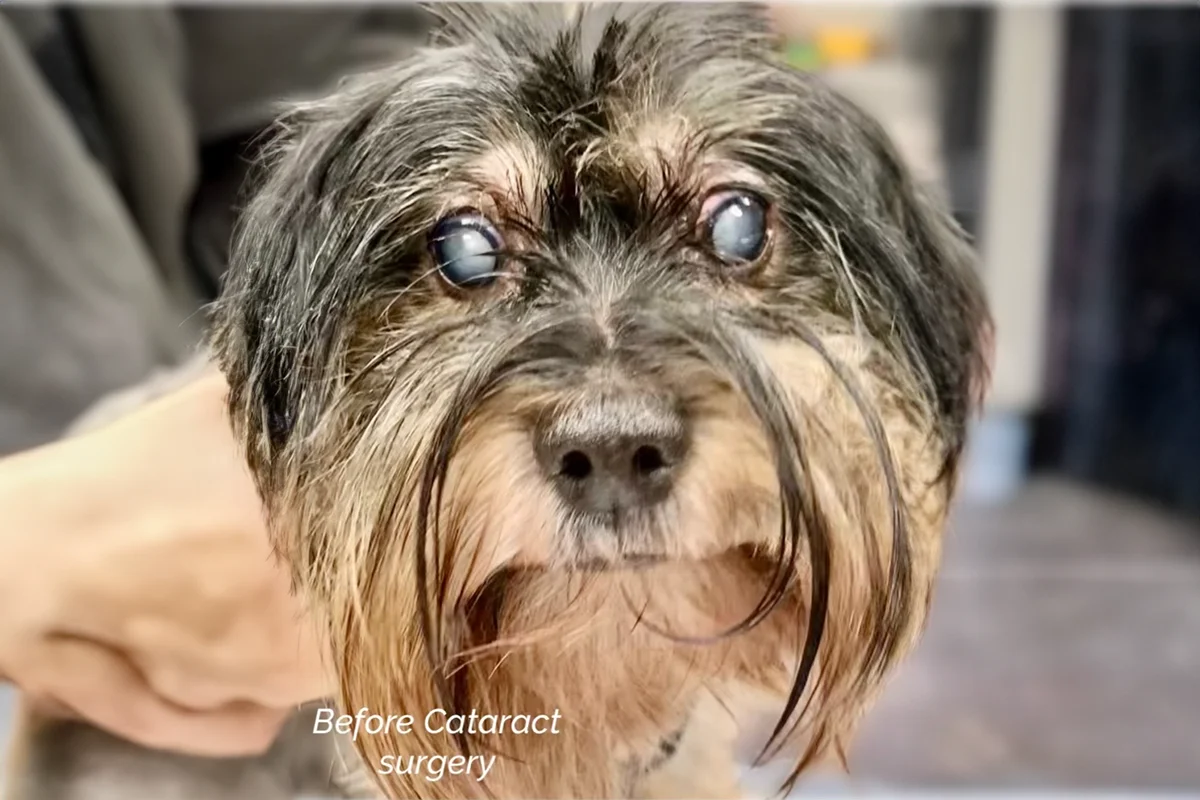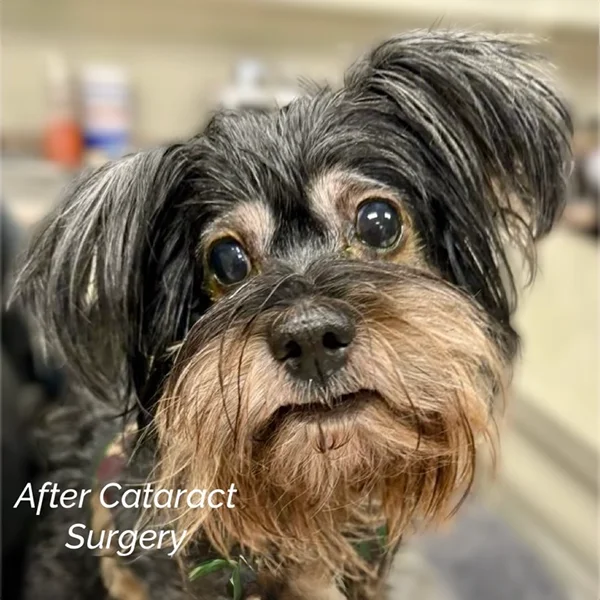Pet Cataracts in Spring, TX
Discover our expert pet cataract care in Spring, TX. North Houston Veterinary Ophthalmology offers advanced treatment to restore your pet’s vision with gentle cataract treatment.

Important facts regarding cataracts in pets
Understanding Pet Cataracts
Cataracts in pets, particularly in dogs, are a common yet concerning issue. At North Houston Veterinary Ophthalmology in Spring, TX, we specialize in diagnosing and treating pet cataracts. Understanding this condition can help you make informed decisions about your pet’s eye health.

What Are Pet Cataracts?
Cataracts are opacities of the lens in your pet’s eye. The lens is a highly transparent and complex structure. Any disruption to this delicate system leads to a loss of transparency and a decrease in vision. Cataracts can vary in size, affecting part or all of the lens, and can significantly impair vision.
Causes of Cataracts in Pets
Several factors can cause cataracts in pets, particularly in dogs:
- Genetic Predisposition: Genetic cataracts are the most common type in dogs. Many breeds, including Boston Terriers, Miniature Poodles, American Cocker Spaniels, Standard Poodles, and Miniature Schnauzers, are prone to this condition. Typically, cataracts develop between the ages of 4-7 years, though they can appear in dogs as young as six months. The earlier the onset, the faster the progression.
- Diabetes: Diabetes is another significant cause of cataracts in dogs. Approximately 80% of diabetic dogs develop cataracts within six months of their diagnosis. These cataracts are aggressive and can lead to sudden vision loss.
- Other Causes: Other factors contributing to cataract development include intraocular inflammation, certain retinal diseases, and trauma to the eye.
Signs Your Pet May Have Cataracts
Identifying cataracts early can lead to more effective treatment. Watch for these signs:
- Cloudy or bluish-gray appearance in one or both eyes
- Noticeable vision impairment
- Bumping into furniture or walls
- Hesitancy in navigating stairs or unfamiliar areas
Treatment Options for Pet Cataracts
At North Houston Veterinary Ophthalmology, we offer advanced treatments for pet cataracts, aiming to restore your pet’s vision and improve their quality of life.
- Phacoemulsification: This surgical procedure is the same method used in human cataract surgery. It involves the removal of the affected lens and the insertion of an artificial lens. This procedure has a success rate of 80-90%, with success defined as a visual and comfortable eye.
Risks of Untreated Cataracts
Ignoring cataracts can lead to several complications, including:
- Progressive vision loss
- Intraocular inflammation
- Retinal detachment
- Development of glaucoma
- Lens luxation, where the lens becomes dislocated within the eye
Why Choose North Houston Veterinary Ophthalmology?
When it comes to pet cataracts in Spring, TX, our clinic offers several key benefits:
- Expertise: Our veterinarians specialize in ophthalmology, ensuring your pet receives the best care.
- Advanced Technology: We utilize the latest techniques and equipment for diagnosing and treating cataracts.
- Comprehensive Care: From diagnosis to post-surgical care, we provide a full range of services to support your pet’s eye health.
The Importance of Regular Eye Exams
Regular eye exams are crucial in detecting cataracts early. Early diagnosis can lead to more effective treatment and a better prognosis for your pet. At North Houston Veterinary Ophthalmology, we recommend annual eye exams for pets, especially those with breeds predisposed to cataracts.
Contact Us
If you suspect your pet has cataracts or want to schedule a routine eye exam, contact North Houston Veterinary Ophthalmology in Spring, TX. Our team is dedicated to providing the best care for your pet’s vision needs.